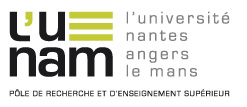Goal-Directed Fluid Therapy and major postoperative complications in elective craniotomy. A retrospective analysis of a before-after multicentric study
Résumé
Background : Goal-Directed Fluid Therapy (GDFT) is recommended to decrease major postoperative complications. However, data are lacking in intra-cranial neurosurgery.
Methods : We evaluated the efficacy of a GDFT protocol in a before/after multi-centre study in patients undergoing elective intra-cranial surgery for brain tumour. Data were collected during 6 months in each period (before/after). GDFT was performed in high-risk patients: ASA score III/IV and/or preoperative Glasgow Coma Score (GCS) < 15 and/or history of brain tumour surgery and/or tumour greater size ≥ 35 mm and/or mid-line shift ≥ 3 mm and/or significant haemorrhagic risk. Major postoperative complication was a composite endpoint: re-intubation after surgery, a new onset of GCS < 15 after surgery, focal motor deficit, agitation, seizures, intra-cranial haemorrhage, stroke, intra-cranial hypertension, hospital-acquired related pneumonia, surgical site infection, cardiac arrythmia, invasive mechanical ventilation ≥ 48 h and in-hospital mortality.
Results : From July 2018 to January 2021, 344 patients were included in 3 centers: 171 in the before and 173 in the after (GDFT) period. Thirty-six (21.1%) patients displayed a major postoperative complication in the Before period, and 50 (28.9%) in the After period (p = 0.1). In the propensity score analysis, we matched 48 patients in each period: 9 (18.8%) patients in the After period and 14 (29.2%) patients in the Before period displayed a major perioperative complication (p = 0.2). Sixty-two (35.8%) patients received GDFT in the After period, with great heterogeneity among centers (p < 0.05).
Conclusions : In our before-after study, GDFT was not associated with a decrease in postoperative major complications in elective intra-cranial neurosurgery.
| Origine | Fichiers éditeurs autorisés sur une archive ouverte |
|---|---|
| licence |



